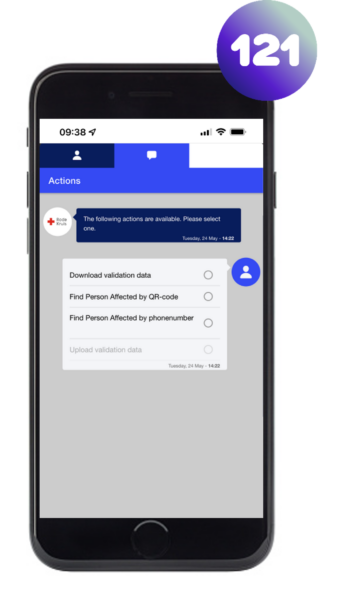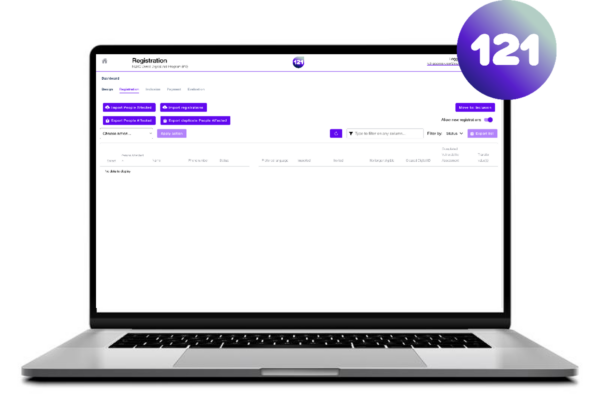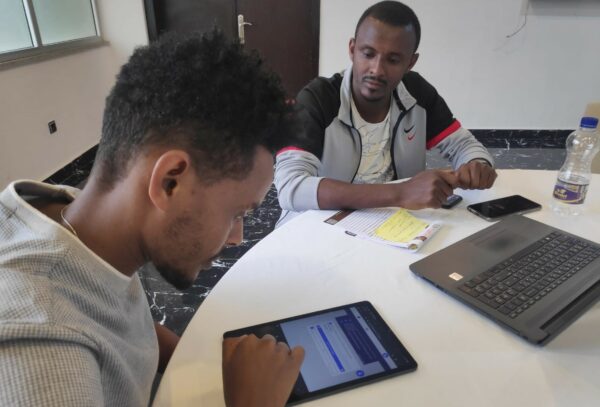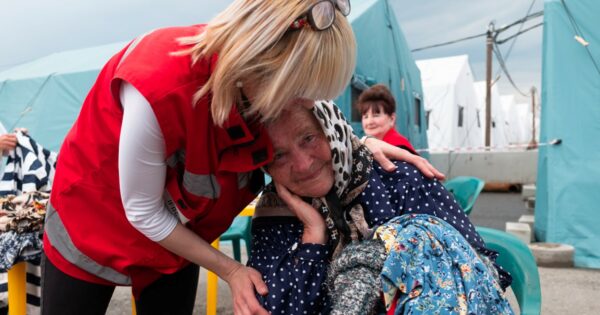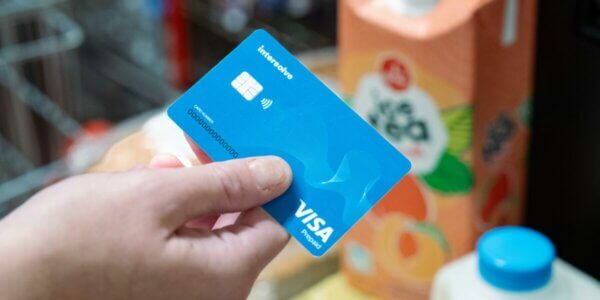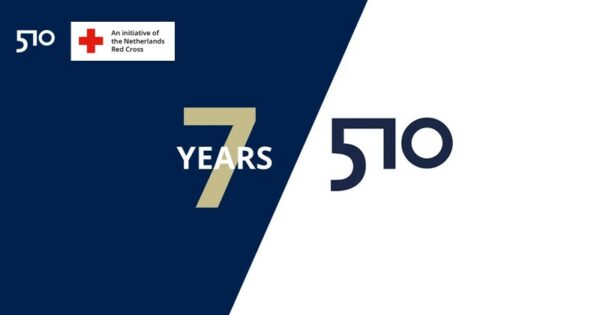The aim of the 121 Platform is to make Cash & Voucher Assistance (CVA) easier, safer and faster, and to help people affected by disasters meet their own needs. This solution includes a portal to assist humanitarian organizations in running a safe CVA program, as well as an app for aid workers to efficiently validate registrations of people affected.
